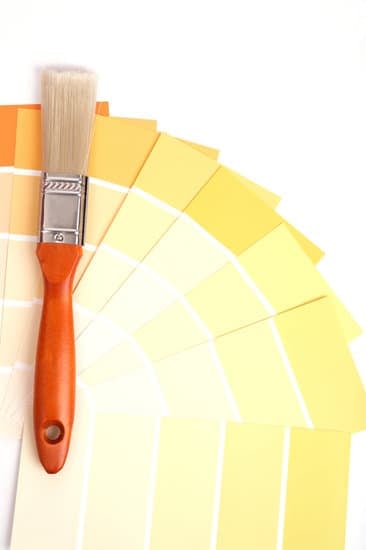What home improvements are tax deductable? Understanding tax deductible home improvements is essential for homeowners looking to maximize their tax savings. Knowing which expenses can be deducted can help you make informed decisions about your property upgrades and investments. By taking advantage of available tax deductions, you can potentially save money while enhancing the value of your home.
When it comes to eligible home improvements, there are specific criteria that must be met in order to qualify for tax deductions. These criteria may vary depending on the nature of the improvement and its impact on the property. It’s important to understand these requirements in order to ensure that you are claiming legitimate deductions and avoiding any potential issues with the IRS.
From energy-efficient upgrades to home office renovations, there are various types of home improvements that can qualify for tax deductions. By familiarizing yourself with the different categories of deductible expenses, you can identify opportunities to reduce your tax liability while making valuable enhancements to your living space. Documenting these improvements thoroughly is also crucial in order to support your claims and avoid any discrepancies during an audit.
Importance of Knowing What Home Improvements Are Tax Deductible
Knowing which home improvements are tax deductible is crucial for homeowners looking to save money on their taxes. By taking advantage of these deductions, homeowners can potentially reduce their tax liability and save on overall expenses. This knowledge can make a significant difference in how much you owe the government at the end of the year.
Here are some key reasons why understanding what home improvements are tax deductible is important:
- Maximizing Tax Savings: By knowing what home improvements qualify for tax deductions, homeowners can maximize their savings and potentially lower their taxable income.
- Financial Planning: Understanding tax deductible home improvements can help homeowners plan their finances better by allocating funds towards renovations that offer tax benefits.
- Compliance with Tax Laws: Being aware of which home improvements are eligible for deductions ensures that homeowners comply with relevant tax laws and regulations, avoiding any potential penalties or audits.
In order to be eligible for tax deductions on home improvements, there are certain criteria that must be met. Some common eligibility requirements include:
- The improvement must be considered a capital improvement that adds value to the property.
- The improvement must be necessary for medical reasons or to accommodate a disabled individual.
- The homeowner must have documentation to support the cost of the improvement, including receipts, invoices, and contracts.
By understanding these criteria and knowing what types of home improvements qualify for tax deductions, homeowners can ensure they are taking full advantage of potential savings when it comes to filing their taxes.
Eligibility Criteria for Tax Deductible Home Improvements
When it comes to determining which home improvements are tax deductible, understanding the eligibility criteria is crucial. The Internal Revenue Service (IRS) has specific guidelines that dictate what qualifies as a tax-deductible home improvement. Generally, home improvements that increase the value of your property, prolong its useful life, or adapt it to new uses may be eligible for tax deductions. Additionally, home improvements must be considered necessary or ordinary repairs, rather than luxurious additions, to qualify for deductions.
One key factor in the eligibility criteria for tax-deductible home improvements is whether the improvement is considered a capital improvement or a repair. Capital improvements are typically larger-scale projects that add value to your property over time, such as adding a new room or renovating a kitchen. On the other hand, repairs are generally smaller maintenance tasks that keep your property in good condition but do not necessarily increase its value.
Another important consideration for determining the eligibility of home improvements for tax deductions is whether they are made on your primary residence or a rental property. In most cases, only improvements made on your primary residence are eligible for tax deductions. However, there are certain circumstances where improvements on rental properties may also qualify for deductions, such as if they are necessary for maintaining tenants’ safety and well-being.
It is essential to keep detailed records and documentation of all home improvements when claiming tax deductions. This includes receipts, invoices, contracts with contractors, and any other relevant paperwork that demonstrates the cost and nature of the improvement. Having thorough documentation will not only help support your deduction claims but also ensure compliance with IRS regulations regarding deductible home improvements.
Types of Home Improvements That Qualify for Tax Deductions
Making improvements to your home can not only enhance its appearance and functionality but also potentially provide tax benefits. Understanding which home improvements are tax deductible can help you maximize your tax savings and make informed decisions about renovating your property.
Energy-Efficient Upgrades
One of the most common types of home improvements that qualify for tax deductions are energy-efficient upgrades. These can include installing solar panels, energy-efficient windows, doors, or HVAC systems. The government offers incentives to homeowners who make these eco-friendly improvements as they help reduce the overall energy consumption of a property.
Medical Necessity Renovations
Another category of home improvements that may be tax deductible are those made for medical necessity reasons. If you need to make modifications to your home to accommodate a medical condition or disability, such as adding wheelchair ramps, wider doorways, or accessible bathrooms, these expenses could potentially be deducted from your taxes.
Home Office Expenses
If you use a portion of your home exclusively for business purposes, such as a designated home office space, certain renovations in that area may also be eligible for tax deductions. This can include repainting, installing built-in shelving or storage solutions, upgrading lighting fixtures, or even expanding the square footage of the workspace. It is important to keep detailed records and receipts for these improvements when claiming them on your taxes.
By understanding which types of home improvements qualify for tax deductions and keeping accurate documentation of these projects, you can potentially save money while enhancing your living space. Remember to consult with a tax professional to ensure compliance with all regulations and maximize your tax savings through deductible home improvements.
Documentation Required for Claiming Tax Deductions on Home Improvements
When it comes to understanding tax-deductible home improvements, homeowners must be aware of the documentation required to claim these deductions. Keeping accurate records is essential to substantiate the expenses incurred on eligible home improvements. Receipts, invoices, contracts, and any other relevant documents should be organized and retained for future reference when filing taxes.
One important document that homeowners need for claiming tax deductions on home improvements is Form 5695 (Residential Energy Credits). This form is used to report energy-efficient upgrades such as solar panels, wind turbines, geothermal heat pumps, and other renewable energy systems installed in a primary or secondary residence. Additionally, receipts or manufacturer certifications indicating the energy efficiency of the installed systems may also be required by the IRS.
Another crucial piece of documentation for claiming tax deductions on home improvements is a detailed breakdown of the project costs. This includes labor expenses, materials purchased, permits acquired, and any other related costs associated with the improvement work. It is recommended to keep a separate file specifically for home improvement projects to facilitate easier access to necessary paperwork during tax filing season.
| Documentation Required | Reason |
|---|---|
| Receipts and Invoices | To substantiate expenses incurred |
| Form 5695 (Residential Energy Credits) | For reporting energy-efficient upgrades |
| Detailed Project Costs Breakdown | To account for labor, materials, permits, etc. |
Common Misconceptions About Tax Deductible Home Improvements
When it comes to tax deductible home improvements, there are several common misconceptions that homeowners may have. Understanding these misconceptions can help individuals make informed decisions about their home improvement projects and potential tax benefits.
Myth 1: All Home Improvements Are Tax Deductible
One of the most prevalent misconceptions is that all home improvements automatically qualify for tax deductions. In reality, only specific types of home improvements that meet certain criteria set by the IRS are eligible for tax deductions. It’s crucial for homeowners to be aware of these criteria to avoid disappointment when filing their taxes.
Myth 2: Cosmetic Upgrades Are Always Non-Deductible
Another misconception is that only major renovations or repairs qualify for tax deductions, while cosmetic upgrades do not. While it’s true that purely cosmetic enhancements like painting or landscaping may not be eligible for tax deductions, certain energy-efficient upgrades or improvements related to health and safety could still qualify.
Myth 3: DIY Projects Are Automatically Eligible for Tax Deductions
Some homeowners mistakenly believe that any do-it-yourself (DIY) projects they undertake on their property will automatically qualify for tax deductions. However, whether a DIY project is eligible for tax deductions depends on the nature of the work done and if it meets the IRS guidelines for deductible home improvements. It’s important to keep detailed records and receipts for materials and expenses incurred during DIY projects to support any deduction claims.
By dispelling these common misconceptions about tax deductible home improvements, homeowners can navigate the complexities of claiming deductions more effectively. Seeking guidance from a tax professional can also provide clarity on what home improvements are truly eligible for tax deductions based on individual circumstances and help maximize potential savings come tax time.
How to Maximize Tax Savings Through Home Improvements
When it comes to maximizing tax savings through home improvements, there are several strategies homeowners can consider. By making certain upgrades or renovations to their property, individuals may be eligible for tax deductions that can help reduce their overall tax liability. Here are some ways to maximize tax savings through home improvements:
- Energy-Efficient Upgrades: Investing in energy-efficient upgrades such as installing solar panels, energy-efficient windows, or a new HVAC system can not only save money on utility bills but also qualify for valuable tax credits.
- Home Office Deductions: If you use a portion of your home exclusively for business purposes, you may be eligible to deduct expenses related to the home office. This can include costs for renovations or improvements made to the space.
- Medical Necessity Modifications: Home improvements made for medical necessity reasons, such as wheelchair ramps, grab bars in bathrooms, or stair lifts, may be eligible for tax deductions if they exceed a certain threshold of your adjusted gross income.
In addition to these specific strategies, it is essential for homeowners to keep detailed records and documentation of all home improvement expenses. This includes receipts, invoices, contracts, and any other relevant paperwork that can support their claims for tax deductions. It is also advisable to consult with a qualified tax professional who can provide guidance on what home improvements are tax deductible and help navigate the complex regulations surrounding this issue.
By taking advantage of available tax deductions on home improvements and following the guidelines set by the IRS, homeowners can potentially reduce their taxable income and maximize their overall tax savings. It is important to stay informed about current regulations and eligibility criteria for these deductions in order to make informed decisions about which home improvement projects will offer the greatest financial benefits come tax time.
Consultation With a Tax Professional for Guidance on Deductible Home Improvements
When considering what home improvements are tax deductible, it is crucial to consult with a tax professional for guidance. Tax laws and regulations can be complex, so seeking expert advice can help ensure that you are maximizing your potential savings while abiding by the rules. A tax professional can offer valuable insights into which home improvements qualify for deductions and provide guidance on the documentation required to claim these deductions successfully.
Furthermore, consulting with a tax professional can help you navigate the eligibility criteria for tax deductible home improvements. These criteria may vary depending on factors such as the type of improvement, the purpose of the improvement, and whether or not it adds value to your property. By working closely with a tax professional, you can gain a better understanding of these criteria and make informed decisions about which home improvements to prioritize in order to maximize your tax savings.
In conclusion, while it is essential to research and understand what home improvements are tax deductible on your own, consulting with a tax professional can provide invaluable assistance in navigating this complex topic. By seeking expert guidance, you can ensure that you are taking full advantage of available tax deductions while staying compliant with relevant regulations. Ultimately, partnering with a tax professional can help you optimize your financial benefits when investing in home improvements.
Frequently Asked Questions
What Home Improvements Are Tax Deductible IRS?
Home improvements that are tax deductible according to the IRS typically fall under the category of energy efficiency upgrades, such as installing solar panels or energy-efficient windows. These improvements can potentially qualify for tax credits or deductions.
Is a Bathroom Remodel Tax Deductible?
A bathroom remodel is generally not tax deductible unless it falls under the category of a medical expense or a home improvement that increases the value of your home. For medical expenses, you may be able to deduct a portion of the costs if the remodel is necessary for medical reasons.
What Does the IRS Consider Capital Improvements on Home?
The IRS considers capital improvements on a home as enhancements that add value to the property, prolong its useful life, or adapt it to new uses. This can include projects like adding a room, renovating the kitchen, replacing the roof, or upgrading electrical or plumbing systems.
It’s important to keep detailed records of these improvements for potential future tax implications.

I’m thrilled to have you here as a part of the Remodeling Top community. This is where my journey as an architect and remodeling enthusiast intersects with your passion for transforming houses into dream homes.





